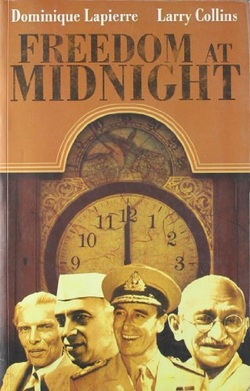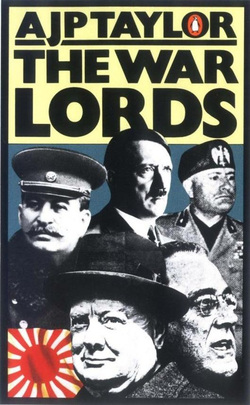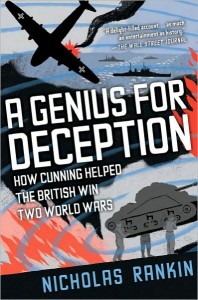
In Freedom at Midnight, Collins and Lapierre unveil the story of how thoughtful, intelligent, and willful men brought a negotiated end to an empire, yet unleashed the most massive migration in human history.
Upon arriving in India in 1947, Viceroy Mountbatten sought a consensus solution for the emplacement of Indian self-rule. "I had to force the pace," he remembered, "[for] we were sitting... on a fused bomb and we didn't know when the bomb would go off." The fuse moved towards an explosive packed with sectarian resentments that might engulf over a fifth of the world's population. Mountbatten sought to leave the subcontinent with all the imperial dignity he could muster. He therefore charmed Gandhi, Nehru, Jinnah and other Indian political elite into finding a swift solution. As the clock struck midnight on August 15, 1947, those leaders celebrated a historic accomplishment: a bartered transfer of power after hundreds of irrevocable years of colonial experience. The Indian elite smothered the bomb of sectarian strife, but it still went off. Hundreds of thousands perished.
The book draws to a close after Hindu extremists murder Mahatma Gandhi. Rather than celebrating Gandhi's pious nature, the murderous zealots despised Gandhi as the purveyor of "a coward's philosophy that had vitiated the force and character of the Hindu people." But in the violent season that surrounded Indian independence, it took no courage for the strong to slaughter the weak and helpless. "India was ever a land of extravagant dimensions, and the horror of the Punjab's killings, the abundance of human anguish and suffering that they would produce would not fail that ancient tradition."
Collins and Lapierre present a thoughtful and heartfelt rendering of India's tragic salvation. Their largely successful work contains two irritations. First, the authors suggest the Indian political elite might have better managed the transition to Indian independence. But they present little evidence that historic contingency allowed for any serious alteration of the outcome. Second, they show little empathy for the Eastern concepts of reverence that locked the various factions into cycles of bloodshed; they consider sectarian rivalry as a mere cultural cover for self-interested gain. While that thesis holds a truth, it fails to grapple with the complete complexity of religious psychology. Yet the sweeping power of their epic narrative renders such complaints a marginal matter for academic debate; their biases in no way impede enjoyment of the book. Collins and Lapierre tell a critically important story of power and persuasion, religious faith and political jealousy--and they tell it well.
* * * * * *
My task, I suppose, as a writer is to reflect upon how the readings I undertake illuminate or complicate my primary interest as a social scientist--namely, the British use of special operations in the Second World War.
A few key points emerge from my reading of Freedom at Midnight. First, while I remain an unrepentant admirer of Wavell, the penultimate Viceroy of India, he needed to make way for someone with Mountbatten's charm and energy. Given Wavell's previous use of unorthodox measures in campaigns in the Middle East and Burma, why did he not attempt to attempt unorthodox political maneuvers? His journals make clear that he suffered under a tremendous workload, with little time to think matters over. Further, the Indian civil service, at the time, lacked the ambitious strivers found throughout the British military at the time of the Second World War. If a Wavell does not flag down your car, you never hear about his ideas for Special Night Squads.
The Second World War eviscerated the Raj's competency as an instrument of British power. It became more and more beholden to domestic Indian industry and wealth. And none of these individuals attempted to intervene with Wavell with particularly bold plans? Prospect theory suggests that I should see Wavell taking risks--but I am of course assuming a domain of losses, when in fact the Viceroyalty represented the highest point of his career from the standpoint of status. It is very difficult to determine whether an individual is in a domain of gains or losses sans highly controlled experimentation. We know how propsect theory works and that it proves useful in many contexts, but it takes a lot of hard work to establish the proper domain in a 'real world' situation. Kurt Weyland and Rose McDermott for example, have established instances in which political leaders opted for risky policy options while stumbling within a the context of a losing situation. Weyland cites examples of this during periods of hyper-inflation in 1990s Latin America [also see his 2004 article]; with the economy spiraling out of control, economists throughout the region pulled the plug on their state-centered economic policies and introduced market liberalization despite a heavy cost to their traditional interests and political networks. In McDermott's case, she established that Jimmy Carter succumbed to risk-taking when attempting to resolve the Iranian hostage crisis; despite slim odds of success, he allowed the military to undertake a risky rescue operation that ended in catastrophe and embarrassment.
The extremity and uniqueness of these examples suggest how difficult it can be to establish with certainty that a particular cognitive heuristic (or perhaps psychological mechanism) played a role in an individual's decision making at a particular point in time. It's difficult--but not impossible. With practiced discretion, a researcher can apply qualitative methods to establish causal inference so long as the researcher pays close attention to the psychological theory upon which they draw, and rigorously tests the applicability of the theory to a particular case through the objective observation of causal process, juxtaposed against alternative hypotheses.


 RSS Feed
RSS Feed